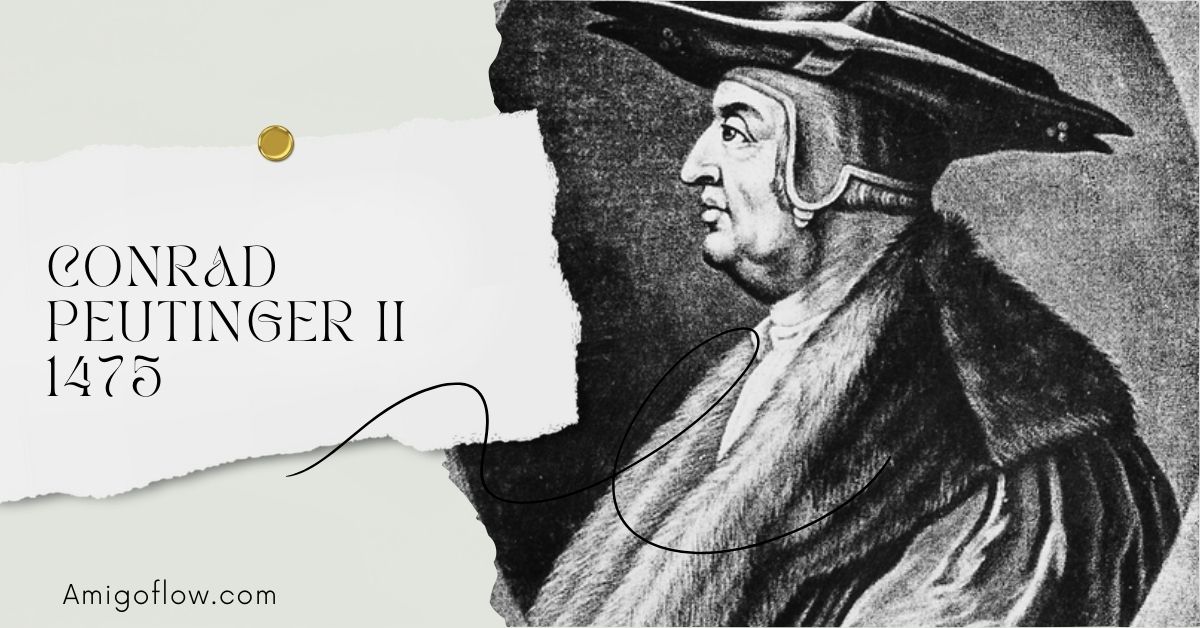Conrad Peutinger ii 1475 is a name that may not immediately ring bells for many, but his contributions to history, diplomacy, and humanism are significant. His multifaceted role in the Renaissance era made him a pivotal figure whose impact resonates even today.
This comprehensive article will explore Conrad Peutinger II’s life, his influence across various fields, and the enduring legacy he left behind. We will also answer some frequently asked questions to offer a well-rounded view of this remarkable individual.
Who Was Conrad Peutinger II?
Conrad Peutinger II, born in 1475, was a distinguished German historian, diplomat, and humanist. His life was marked by notable achievements that shaped the intellectual and political landscapes of his time. Understanding his contributions requires a closer look at his background and the context in which he operated.
Early Life and Education
Conrad Peutinger II was born into a period of intense intellectual and cultural activity known as the Renaissance. His early education was steeped in classical studies, reflecting the era’s fascination with ancient knowledge and learning. As a young scholar, Peutinger was exposed to the rich legacy of classical antiquity, which would profoundly influence his future work.
Historical Significance
Preservation of Classical Knowledge
One of Conrad Peutinger II’s most important contributions was his role in preserving and transmitting classical knowledge. During his lifetime, many ancient texts were lost or forgotten. Peutinger dedicated himself to rescuing and documenting these texts, which was crucial for the preservation of historical and philosophical knowledge.
Diplomatic Achievements
In addition to his scholarly pursuits, Peutinger was a skilled diplomat. His work in this area helped shape the political landscape of Europe during a time of great change. His diplomatic efforts were not merely about negotiation but also about fostering intellectual and cultural exchanges between nations.
Humanism and Intellectual Inquiry
As a humanist, Conrad Peutinger II championed the values of learning and intellectual curiosity. His support for the humanist movement was instrumental in promoting the Renaissance ideals of knowledge, critical thinking, and the revival of classical literature.
Conrad Peutinger II’s Major Works and Contributions
The Peutinger Table
One of the most famous contributions attributed to Conrad Peutinger II is the Peutinger Table, a remarkable map of the Roman world. This map is an invaluable resource for historians and geographers alike. It provides insights into the geographical knowledge of the Romans and their understanding of the world.
Significance of the Peutinger Table
The Peutinger Table is not just a map but a window into the past. It illustrates the extent of Roman infrastructure, including roads and cities, and reflects the organization of the Roman Empire. The map is a testament to the advanced cartographic skills of the Romans and serves as a crucial tool for understanding ancient geography.
Scholarly Works
Conrad Peutinger II wrote extensively on various subjects, contributing to the academic world with his research and writings. His works often focused on classical texts and historical analysis, providing a bridge between ancient knowledge and Renaissance scholarship.
Diplomatic Contributions
Peutinger’s role as a diplomat was not limited to formal negotiations. He was also involved in various cultural and intellectual exchanges that enriched European political and intellectual life. His diplomatic missions often included discussions on literature, philosophy, and science, reflecting his broader interests and expertise.
Legacy of Conrad Peutinger II
Conrad Peutinger II’s influence extends beyond his lifetime, impacting several areas of study and practice.
Influence on Modern Historiography
Peutinger’s preservation of classical texts and his work on the Peutinger Table have left a lasting impact on modern historiography. His contributions helped bridge the gap between ancient and modern historical scholarship, providing a foundation for future researchers and historians.
Contributions to Cartography
The Peutinger Table remains a critical resource in the field of cartography. It has influenced how historians and geographers understand ancient Roman geography and infrastructure. The map’s detailed depiction of roads and cities provides valuable insights into the organization and administration of the Roman Empire.
Humanist Values
As a proponent of humanism, Conrad Peutinger II’s commitment to intellectual inquiry and classical learning continues to resonate in the modern era. His support for humanist principles helped shape the Renaissance and paved the way for future advancements in education and scholarship.
Frequently Asked Questions (FAQs)
What is the Peutinger Table?
The Peutinger Table is a Roman map of the world, preserved through the efforts of Conrad Peutinger II. It shows the extent of the Roman Empire, including its roads, cities, and geographic features. It is an important artifact for understanding ancient Roman geography.
How did Conrad Peutinger II contribute to diplomacy?
Conrad Peutinger II was a diplomat who played a role in shaping European politics through his negotiations and cultural exchanges. His work went beyond formal diplomacy, encompassing intellectual and cultural discussions that enriched the political and intellectual landscape of his time.
What were Conrad Peutinger II’s main scholarly interests?
Conrad Peutinger II was primarily interested in classical texts and historical analysis. His scholarly work focused on preserving and documenting ancient knowledge, contributing to the Renaissance revival of classical learning.
How did Conrad Peutinger II influence modern historiography?
Peutinger’s efforts to preserve classical texts and his work on the Peutinger Table have significantly influenced modern historiography. His contributions helped bridge the gap between ancient and modern historical scholarship, providing a foundation for future research.
What is Conrad Peutinger II’s legacy?
Conrad Peutinger II’s legacy includes his contributions to the preservation of classical knowledge, his influence on cartography through the Peutinger Table, and his support for humanist values. His work continues to impact the fields of history, geography, and intellectual inquiry.
Conclusion
Conrad Peutinger ii 1475 was a remarkable figure whose contributions spanned multiple disciplines. His work as a historian, diplomat, and humanist left an enduring legacy that continues to influence modern scholarship and intellectual pursuits.
By preserving classical knowledge, shaping European politics, and promoting humanist values, Peutinger made significant strides in his time, paving the way for future advancements in various fields. Understanding his life and work offers valuable insights into the Renaissance era and its lasting impact on our world toda















